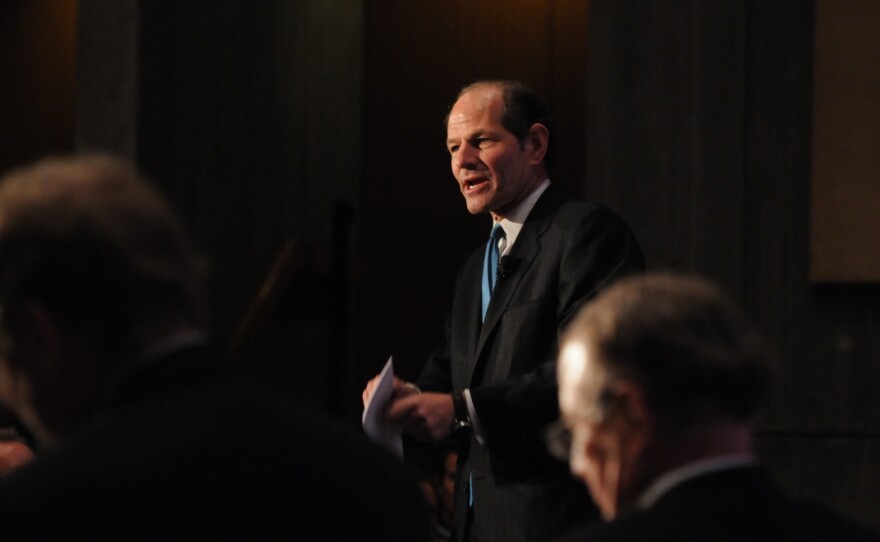The Campbell Public Affairs Institute at the Maxwell School of Syracuse University presents The Campbell Debates, a debate series on timely issues of public importance with a fresh, provocative format.
This is a first in a series of debates employing a style adapted from the Oxford Union debates. Two panels: one for and one against the proposition present their case before the audience. At the conclusion of the debate, the audience is asked to vote on whether or not to accept the proposition. This debate's proposition is, "Increasing taxes on the wealthy." The panel for the inaugural debate:
FOR THE AFFIRMATIVE:
• Leonard Burman, Moynihan Chair of Public Affairs at the Maxwell School; former director of the Tax Policy Center.
• Jennifer Hamlin-Navias, United Church of Christ and Unitarian-Universalist minister, Associate Minister of Religious Education at May Memorial Unitarian-Universalist Church.
• Eliot Spitzer, former Governor and Attorney General of the State of New York.
FOR THE NEGATIVE:
• John DeFrancisco, New York State Senator for the 50th District and Chairman of the Senate Finance Committee.
• Kevin Hassett, Director of Economic Policy Studies at the American Enterprise Institute and columnist for the National Review; former Senior Economist for the Federal Reserve Board of Governors.
• Deborah Warner, Vice President for Public Policy, CenterState Corporation for Economic Opportunity.
The program was taped on April 26, 2012 at the Hosmer Auditorium, Everson Museum in Syracuse.
















